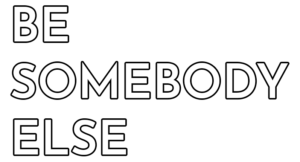
I read this picture in many different ways, and always Giotto reminds me that there’s more to a scene than a story. Or a single story. This painting might offend you because of its anti-semitism. It might bring up particular feelings in you if you are a Christian.
Art necessitates a reaction. Art is like love. What follows is scattered, I’m afraid (again, like love, which has trouble staying in one place). A kind of shrapnel of ideas broadly involving something called ‘cancelling’: withdrawing permission for someone to be known; blocking someone in the first place from presenting themselves. Their passionate thoughts about the thing we could say that they love, or the way that they love something, are unacceptable..
I find the Kiss of Judas frightening for what it says about love and permission. Judas’ kiss seems to have been a sign, although the gospels don’t go out of their way to explain this, of who Christ was. It marked him out so that he could be arrested. The kiss was an act of betrayal. Following it both men died: Christ was crucified and Judas either hanged himself in a field after returning the 3o pieces of silver he received for the betrayal; or burst open after buying a field , the Field of Blood, with the money.
Love is art.
If I kiss someone expecting something in return I betray them. If I say to someone ‘I love you’ hoping for the same to be said to me, I offer a sign of my disloyalty. I offer that person up in the name of me.
Love needs to be given without a thought of return. Thinking and love don’t really go well together, but of course they must. You can’t offer it without something already agreed: you can offer it because you have permission.
What you receive is before what you give. The love given out of permission permits the love of ‘I love you’.
That’s about people.
Whatever I get from a painting, good or bad, comes from the permission I have to look at it. The permission, that sign of freedom, has to be preserved. Without it there is no possibility of love. There’s only the Field of Blood.
That’s about art.
All of this is about life. Cancel culture takes us to a dead end, Akeldama, the Field of Blood. Life continues with permission: the freedom to look, to act, to ask.

